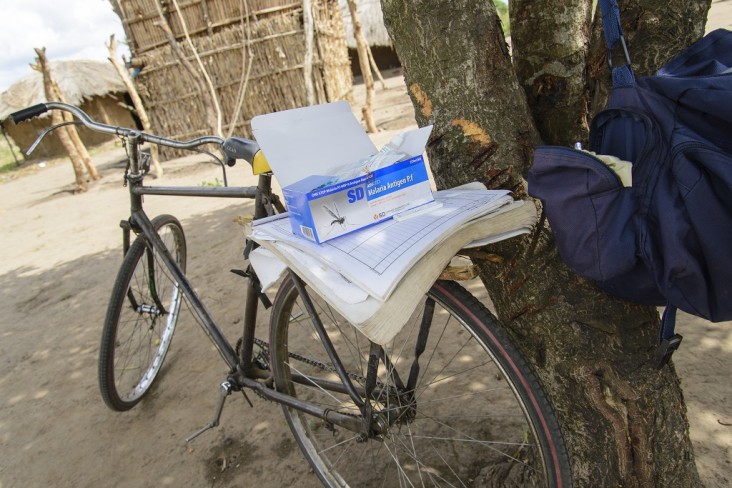Speeches Shim

April 2016—Dust devils are swirling through Catsanha, a village of about a dozen huts scattered across a dusty plane in western Mozambique's Moatize district in Tete province. Big industries have recently moved in for the coal reserves, so abundant in this part of the country.
Yet while natural resources help keep modern societies running, people in this village still face the grim reality of undernutrition and child deaths from easily preventable diseases.
José Azevedo works as a community health worker, or agente polivalente elementar as they are called in Mozambique, in Catsanha and surrounding communities. With 20 kilometers to the nearest health center, he provides health promotion and basic health services, such as diagnosis and treatment of the three main killers of children in Mozambique: malaria, diarrhea and acute respiratory infections.
“I was chosen by my own community to become a health worker. It is important to help your family and your community,” says Azevedo, who has been a community health worker since 2012.
Supplied with a bike from a USAID-supported health worker program, Azevedo makes door-to-door visits in the community. The distances are vast and the dirt roads are full of potholes and sharp rocks that can easily rip a tire. Under the shade of a colossal baobab tree, Azevedo speaks about the challenges he faces.
“It is difficult to find spare parts, and the tires are very expensive,” says Azevedo. “Some of the communities I visit are very far from here and, even with a bike, it is difficult to reach them. Without a bike, it would be impossible for me to do my work.”
With the technical support of UNICEF and financial support of USAID, the number of community health workers in Mozambique increased from 2,225 in 2013 to 2,747 at the end of 2014, and their abilities expanded to deal with neonatal and infant health as well as nutrition.
In 2014, community health workers made home visits to about 2.4 million people in Mozambique, of whom about a million were children under age 5, and about 817,000 people benefited from treatment for malaria, diarrhea and pneumonia. At the end of 2015, there were over 3,000 community health workers in Mozambique.
Since 2012, USAID, in partnership with UNICEF, has been providing support to Mozambique's Ministry of Health to implement key maternal, newborn and child health interventions at the community level by scaling up the number of community health workers. The main responsibilities of the workers include providing primary health promotion; prevention and curative services for the most common illnesses among children under 5; family planning services; and increasing immunization rates.
Follow @USAIDMozambique, on Facebook, on Flickr, on YouTube

Comment
Make a general inquiry or suggest an improvement.